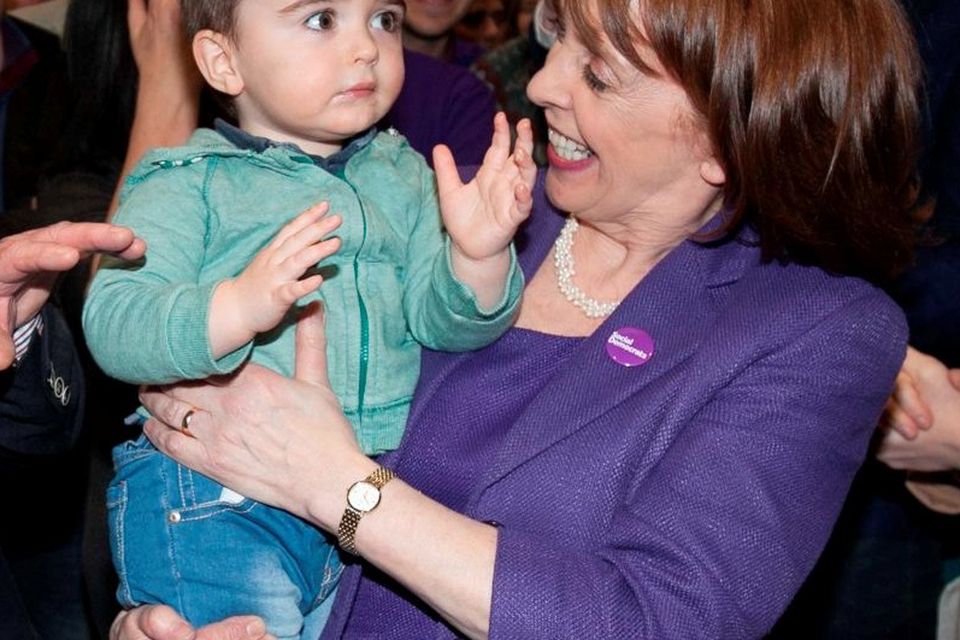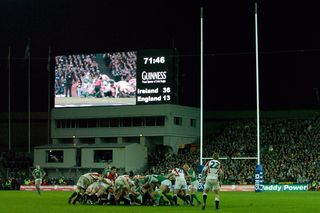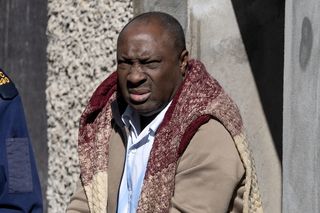End of Civil War politics would give us a real choice between Left and Right
Róisín Shortall of the left-leaning Social Democrats, who topped the poll in Dublin North West, celebrates with grand nephew Dara Baxter (2) at the count centre in Dublin’s RDS. Photo: Collins Dublin, Gareth Chaney
Descriptions of last week's General Election as an earthquake are overblown, but if it results in a realignment of Irish politics along ideological lines, the next one could be seismic.
Since the foundation of the State, ideology has been notably absent from Irish politics, with party loyalty instead determined by Civil War legacies that were inculcated at birth and remained steadfast throughout adulthood.
Fianna Fáil and Fine Gael supporters were sworn enemies, not because of any discernible difference in their policy platforms, but because members of their families had once supported either Dev or Michael Collins.
This phoney war between the two parties has persisted for nearly 100 years, with power intermittently being passed like a baton from one to the other, with Fianna Fáil proving more adept at maintaining dominance.
In the history of the State, there has never been a Left-led government. Instead, Labour has occasionally entered government as a minority coalition partner, only to be decimated at the polls for its collaboration at the next available opportunity.
With the party having failed to learn the lessons of its own history, voters have again reduced Labour to a smouldering ruin but the significance of Friday's election is that voters haven't reverted en masse to the two big parties but have instead flocked to other left-leaning parties and Independents.
Fianna Fáil, having dragged itself out of the political grave the electorate dug for it in 2011, is understandably pleased with its performance, but the crowing from some quarters belies the fact that this remains its second-worst-ever election result.
Having always achieved more than 40pc of the vote up until 2011, the party received 24pc support on Friday - up nearly 7 points from its near annihilation five years ago but still nowhere near the hegemony it once enjoyed. In Dublin, its recovery has been even more muted, with just a three-point increase since 2011, but still down 24 points from 2007.
Meanwhile, Fine Gael, which successfully appealed to furious Fianna Fáil voters for the loan of their votes five years ago, has seen those voters cash in their chips and desert the party, with its support falling back from 36pc to 25pc.
Significantly, for the first time ever, the combined support for the two monoliths of Irish party politics has fallen below 50pc, with left-leaning parties and Independents now comprising a large minority of approximately 40pc.
Support for Labour is down nearly 13 points nationally, but the party suffered its biggest losses in Dublin, where support fell by a precipitous 20 points. However, the combined support of Sinn Féin, the AAA-PBP, the Social Democrats and the Green Party is up by an equivalent amount.
Labour suffered its biggest rout in Dublin North West, where support for the party fell by a vertiginous 34 points. This left-wing vote did not benefit Fianna Fáil, whose support was up only 0.7 points, but instead went to the Social Democrats, up 28.5 points, with Sinn Féin, the AAA-PBP and the Green Party up a combined 12 points.
The lesson in all of this is that voters may have rejected the Government, but they are also increasingly rejecting the discredited two-and-a-half party political system that has dominated the Irish political landscape for generations.
Clearly, a sizeable number now want real change - not the superficial change of one right-wing party replacing another as the dominant partner in government.
Following Friday's election result, we are now on the brink of a historic coalition between Fine Gael and Fianna Fáil that would once and for all nail the lie that there are any impediments to the two sharing power. Members of both parties may not particularly like each other, but that is down to history and personalities and has nothing to do with their respective policy platforms.
In fact, latterly it has become apparent that the only potential difference between the two parties is that Fianna Fáil is even more socially conservative than Fine Gael, as evidenced by its lacklustre support for the marriage equality referendum and a majority of its parliamentary party voting against very restrictive abortion legislation.
Party apparatchiks are, for now at least, vehemently refusing to enter a grand coalition, not because they don't think they could do a deal, but because they know it would become increasingly difficult for the parties to differentiate between each other at the next election.
Voters still suffering from the delusion that there is any major difference between the two would see them working together quite happily in government and learn that any purported disparities are entirely cosmetic. Consequently, their support would be further eroded.
Although any such coalition would mean a continuation of regressive policies in the short term, and the sudden death of the continuation of any kind of liberal social agenda, in the long term it would at least signal to the electorate that for the first time there is a choice in Irish politics between Left and Right and they do not simply have to resign themselves to a government led by either Fianna Fáil or Fine Gael.
For this choice to really become apparent, parties on the Left must learn to put their petty squabbling aside and provide a credible alternative by learning to do business with each other instead of constantly attacking each other.
A segment on Newstalk yesterday morning is a case in point. In a discussion of the possibility of a resurgent Left working together in the new Dáil, AAA-PBP TD Ruth Coppinger opened her contribution by describing Sinn Féin as "unbelievable and disgraceful".
While some on the Left have nothing but contempt for Labour, voters have proven to be forgiving in the past and if it can return to its roots and resist the lure of coalition with right-wing parties it, too, can recover and form part of this alternative.
Scaremongers cautioning against a Left-led government use words like chaos and anarchy to incite fear among the electorate, but a transfer of power between Left and Right is the norm in most other countries.
The centenary year of the 1916 Rising is an opportune time to consign Civil War politics to the past and offer voters a choice that has been absent for nearly 100 years.
Join the Irish Independent WhatsApp channel
Stay up to date with all the latest news















